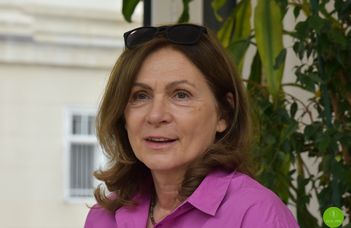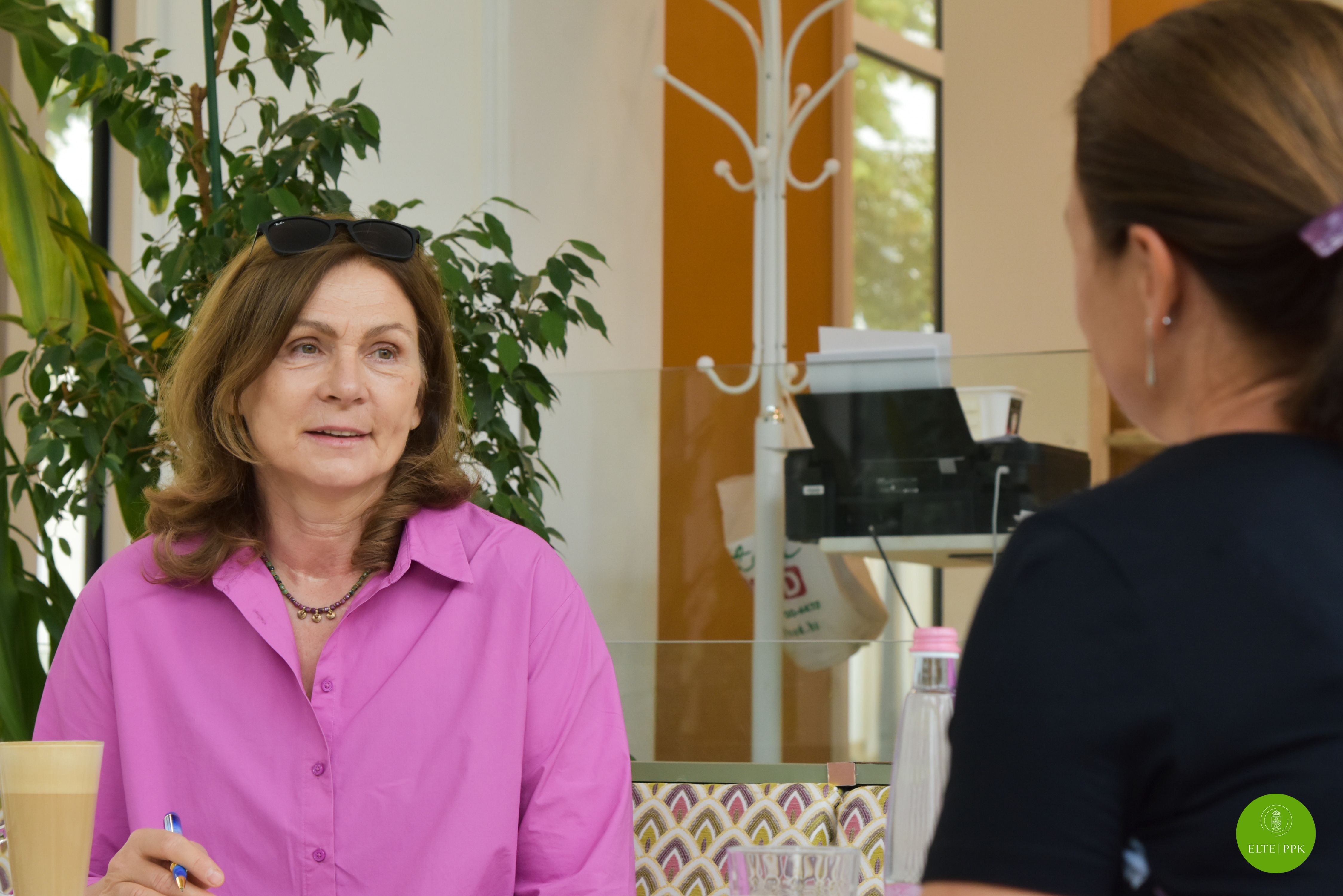Researcher of the brain of adolescents

Not many people know that I have a background in sports, and my hobbies include old favourites like photography. Still, I’m always trying new things, which is a way to relax. The interface between science and art is also exciting for me as a researcher. When you are doing instrumental measurements and working with exact data, you have to know that you are dealing with people, with people’s psyche.
What opportunities does the ELTE PPK offer you as a researcher?It's a kind of return for me, I started my studies here at ELTE and I got quite an excellent foundation. As a member of a psychology class of only 11 students, I had the opportunity to learn about the anatomy of the human brain from János Szentágothai, Professor György Ádám was one of my physiology teachers, Ilona Barkóczy taught me, as did Lajos Kardos, Csaba Pléh and Vilmos Csányi, who at that time was not yet working with dogs but with fish. These were experiences that shaped my whole career, walking on the frontiers of anatomy, physiology and cognitive neuroscience, the realisation of psychology as a science was happening before our eyes. The researchers and laboratories at PPK today offer many opportunities for professional collaboration, and certainly the Doctoral School of Psychology and the English language courses for international students offer exciting opportunities. I am currently working mainly as a research lecturer, leading a number of research projects.

A book and my passion for Go played a big part in it. Towards the end of my university years, I came across Béla Julesz's Foundations of Cyclopean Perception, in which the author, thanks to his engineering background, discussed vision as information processing and supported his arguments with a multitude of stereograms that could be viewed through special glasses. The book is still on the shelf in my office and still fascinates me. I was so fascinated by the subject and the new, unusual approach that I wrote an unknown letter to the author, who was then already working on cognitive research in America. In hindsight, I think that it was not only Csaba Pléh's supportive words that helped me to get a reply, but also the fact that Julesz, himself a passionate gamer, thought he could use a Go partner in his lab. I am very grateful that I was able to travel with a Soros grant and spend the most creative period of my research career at Rutgers University.
After returning home, you worked at the BME and then at the PPKE, where you also built up a versatile instrumental research laboratory. What topics are you interested in?Basically, I am interested in how the brain area responsible for thinking and imagination develops.
Our most recent publication was in Cortex, where we investigated how the human imagination changes with age (see our article for more details).
An important research topic is the study of the adolescent brain, brain development, cognitive and emotional development. Recently, we have studied adolescent sleep and, by measuring the brain activity of sleeping chaperones, we have obtained results that challenge the scientific view of the development of certain areas of the brain during puberty. To better understand the role of sleep in the retention of new knowledge, we need to understand more about the unstimulated brain processes that are not involved in action control.
Another promising line of our research on adolescents focuses on the relationship between cognitive abilities and biological age. While adolescents of roughly the same age face the same expectations at school, if we classify the same youngsters according to the development of their skeletal system, there will be a very large variation in their biological age, and in addition, pubertal maturation occurs with a large difference between boys and girls.
By comparing the development of bone age and cognitive ability, we can get a much more accurate picture of adolescent development, separating the biological and experiential elements within this. The results of this research could play a key role not only in curriculum development but also in the diagnosis and prevention of the development of adolescent mental disorders.
Much of the research is carried out under the auspices of the ELKH-ELTE-PPKE Adolescent Development Research Group, and measurements are carried out in the instrumental laboratory at the PPKE. How can you get involved in the research?We welcome doctoral students interested in our topics and open to empirical research, as well as masters students in psychology who are about to write their thesis. We have a room equipped with a sleep monitor for instrumental sleep studies, our child and adult EEG capsules for various research directions, which can be used in professional, noise-isolated conditions, and an eye movement monitor. In the laboratory area, it is possible to conduct interviews in a relaxed environment or to carry out questionnaire tests.
What will you be doing in the framework of the recently awarded OTKA grant?This proposal was submitted in collaboration with István Winkler, Senior Research Fellow at the ELKH Natural Sciences Research Centre, and aims to measure the vividness of mental imagery. We would like to measure this using a vision paradigm and an auditory paradigm, and then use the new methods to select individuals with very vivid and not at all vivid imagination, whose cortical activity would be compared using EEG. We are looking forward to welcoming interested ELTE PPK students to participate in this project!

